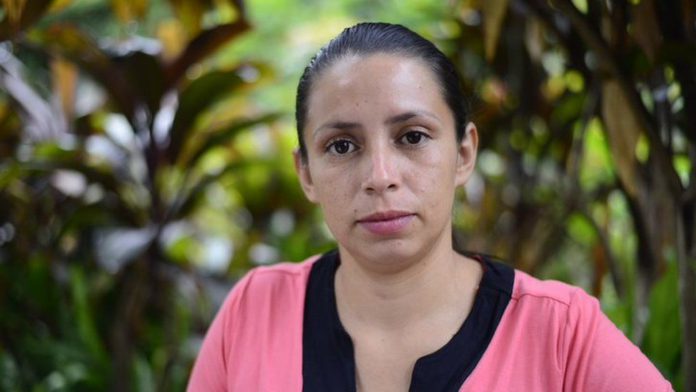When Karen woke up in an El Salvador hospital, she noticed that she was handcuffed to a bed and there were police officers by her bedside.
“There were a lot of people around and they were saying I had taken my baby’s life and that I was going to ‘pay for what I had done’,” Karen tells BBC 100 Women.
She needed emergency care after suffering pregnancy complications. But Karen, who has 22 at the time, found herself accused of having an abortion.
“I tried to explain what had happened. But they didn’t listen,” she recalls.
“I had already been tried and sentenced there”.
El Salvador, in Central America, has some of the world’s harshest anti-abortion laws, which ban all kinds of terminations even if the pregnancy poses a risk to the mother’s life or results from rape or incest.
Charged with aggravated homicide, Karen was sentenced to 30 years in prison. She became known as one of “Las 17”, a group of women imprisoned after losing their babies in obstetric emergencies like miscarriages or stillbirths.
Karen spent six years behind bars before being released along with three other women in December 2021, following a campaign that drew support from international celebrities such as actors America Ferrera and Milla Jovovich.
At the time she was incarcerated, Karen was already the mother of a two-year-old boy. She wouldn’t see him again until he was nine.
“When they said I would spend 30 years in prison, I felt my world was crumbling. I thought of my son and wondered if I would survive it all.”
The Women’s Equality Center, as US-based advocacy group that supports pro-choice campaigns across Latin America, says that at least 180 women have been prosecuted or jailed in the country over the last two decades under similar circumstances.

